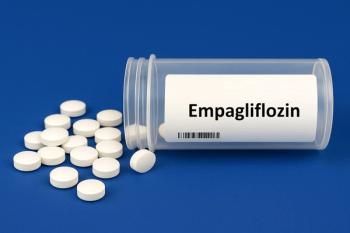
C Diff Infections More Common With Digestive Tract Surgeries
Reducing perioperative antibiotic use can mitigate this risk.
In patients undergoing digestive tract surgeries, Clostridium difficile infections may be more common, according to research published in the journal Experimental and Therapeutic Medicine.1
Researchers set out to evaluate the prevalence, severity, and management of C Diff infection in the general surgery department at a single center in Europe, with the goal of determining the “correlative elements” between surgical pathology and C Diff infection.
For their retrospective descriptive study, the investigators extracted electronic health record data from patients between 2016 and 2018. A total of 24 patients (13 women) were included in the study (mean age, 64.5 years). Mean hospital duration was 19.8 days; 12 patients required care in the intensive care unit, and 6 had been previously hospitalized.
Within the study cohort, the primary pathology was most frequently related to the digestive tract, followed closely by cholecyst, the lower limb, the abdominal wall, the pancreas, and the peritoneum. ATLAS score values—a validated evaluation system used to predict response to C Diff treatment—ranged from 0 to 5. Most patients in the cohort had multiple comorbidities, including cardiovascular or pulmonary comorbidities or diabetes.
“Treatment of [C Diff] infections is complicated, aimed at both improving the symptoms and eradicating the infection,” the researchers wrote. Treatment options include antibiotic and nonantibiotic modalities, ranging from probiotics and fecal transplants to surgery, antibodies, and photodynamic therapy. Current first-line antibiotics include metronidazole, vancomycin, and fidaxomicin, with selection based on infection severity and other factors.
The researchers noted that there have been efforts to develop specific antibiotic use protocols as a way to decrease C Diff incidence among surgical populations, with a primary focus of reducing perioperative antibiotic use; the use of additional antimicrobials, broad-spectrum antibiotics, and prolonged prophylaxis also contribute to an increased postoperative C Diff risk.
“Patients with primary pathologies related to the digestive tract are more prone to develop [C Diff],” the researchers concluded. “Protocols for decrease perioperative antibiotic usage should be taken into consideration as antimicrobials are the most relevant risk factor in the development of [C Diff infection].”
Reference
- Paduraru DN, Ion D, Dumitrascu MC, et al.
Clostridium difficilie infection characteristics in a general surgery clinic. Exp Ther Med. 2021;22(4):1112. Doi:10.3892/etm.2021.10546
Newsletter
Pharmacy practice is always changing. Stay ahead of the curve with the Drug Topics newsletter and get the latest drug information, industry trends, and patient care tips.























